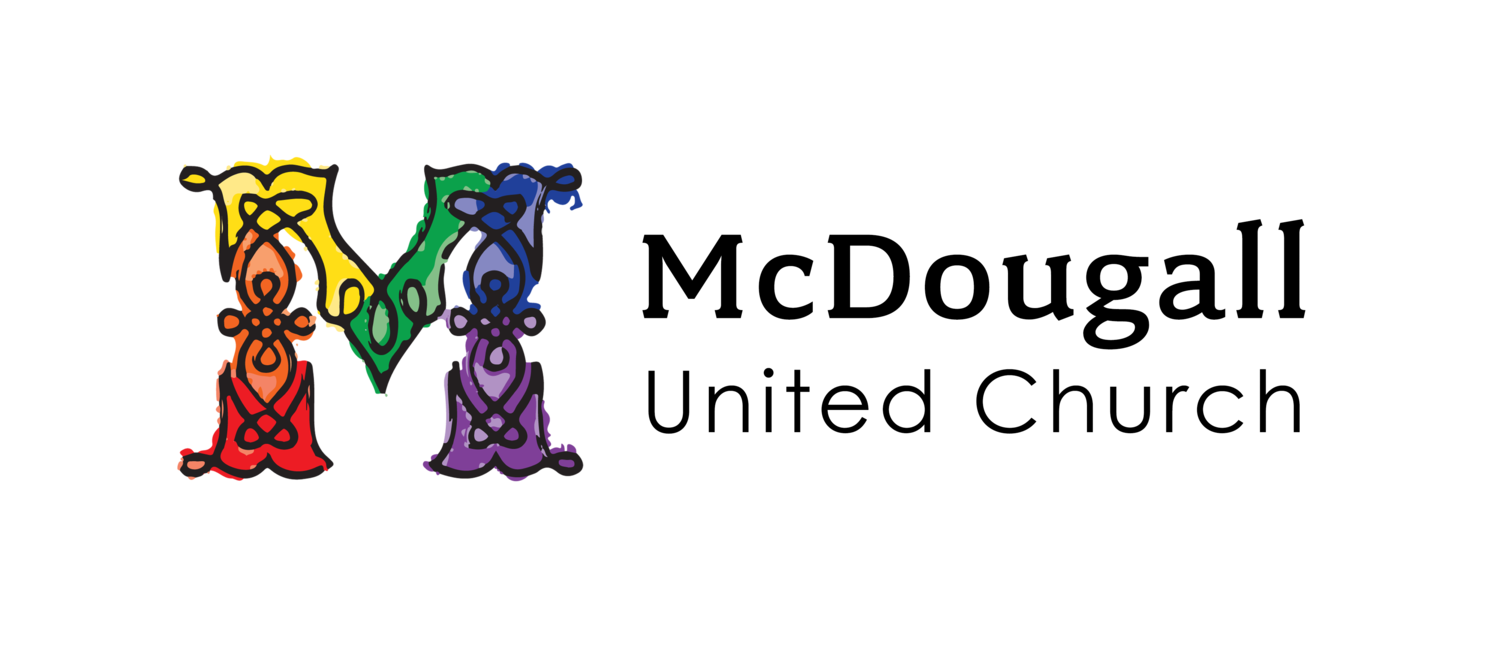Reflections by Rev. Joanne Anquist
I don’t know much about farming. I think that’s why Thanksgiving is so important for me and others who don’t give much thought to how we get our food as we wander through the grocery store. My relationship to farming comes through my ancestors. My great-grandparents on my Dad’s side were homesteaders in Alberta in the early 1900’s – in a place called Amisk, a mostly Swedish community in East Central Alberta. They came from Minnesota in 1908 on the advice of my great grand uncle, who had come earlier. Minnesota had too many trees and my great grandfather spent all his time pulling out stumps and clearing stones. Amisk was mostly prairie so the land was easy to clear. They built a sod hut for the first winter and set about creating a prosperous farm.
My mother’s family had a smaller farm in Abbotsford, BC, growing berries and other things to make a living there. It wasn’t a money maker, that’s for sure, but they got by. Eventually my grandfather rented the farm to another family and moved away to become a hired hand on another farm on The Island.
I come from “humble” beginnings. Whenever my mother thinks we’re getting too “high-falutin”, she’ll remind us that we’re “dirt farmers.” Not sure what that means exactly, but to her our ancestry deserves some reverence and no matter how we prosper, we need to remember our humble beginnings. I know many of you share this connection to the land and have stories about ancestors and their hardscrabble lives.
My great-grandfather sold his farm after the 1921 Scarlett Fever outbreak which took two of his children. He kept a dairy operation, but moved into Amisk to become a delivery man and the owner of a livery stable. Farming took too much out of him – he spent too much time worrying about money, trying to get ahead, and he wanted a simpler life with more time for his family.
My own grandfather tried to homestead but couldn’t make a go of it. My grandmother told me of long days in the house all alone while my grandfather was out in the fields. (No wonder church on Sunday was so important – the only time the whole community came together.) Eventually my grandfather sold the farm and moved into town to open his own business as a garage mechanic. The depression and my grandfather’s generosity (he did too much work for free!) bankrupted that business so they relocated to Edmonton as my father went into highschool. My farming roots in Amisk were lost. I never saw the family homestead or the farm that brought my ancestors to Alberta, at least not in a livable condition.
I did visit the site a couple of years ago. There are Caragana trees that my great-grandmother planted, and an apple tree amongst the bush. The foundations are no longer visible and it’s hard to believe there was ever a farm house there. But I felt a connection to the place because I knew my ancestors had lived there, had farmed there, had children and grandchildren, and worked the land with everything they had. I knew they were grateful to God for every harvest, and another winter they would survive with the fruit of the land. I felt their pain at the loss of their own children, their joy at the marriages and grandchildren, the back-breaking work and the songs of thanksgiving that sprinkled their lives.
Those vestiges of our agrarian past is why Thanksgiving is so important. It is not just a day of celebration, but also of remembrance. Gratitude and remembrance of the hard lives those homesteaders had who came to our prairies with hopes of a better life. Gratitude and remembrance of all the small communities like Amisk dotted throughout the province that had churches and schools and libraries (Amisk has the oldest registered public library in rural Alberta) that fostered community for early settlers and immigrants – communities that have struggled and disappeared over the last hundred years. I celebrate with those, like my uncle, who have continued to farm (even if he had another job to make ends meet). I know of families that have farmed their land here in Alberta for more than 100 years. In all this, I am grateful that we are a country of plenty where there is enough for everyone.
As we sit down around my sister’s table on Thanksgiving Day, (this is the first time she has ever hosted, so I’m really grateful this year!) we will remember the ancestors and their struggles. We will give thanks for the ones who tilled the soil, planted the seeds, cultivated the land, harvested a bounty that we will all enjoy. We will speak our gratitude for the past year. Most of all, we will thank God for another year of plenty and our wonderful family of “dirt famers.”
“The Blessing of Autumn” by Kate McIlhagga (from A Book of Blessings by Ruth Burgess)
As Autumn flames across park and field
As smoke curls from ditch and garden
As birds sing their farewell song
As frost begins to touch the ground
And our hearts are warmed
By the scent, sound and touch of it,
Then is the time to throw away
The heavy stones of anger, regret and fear,
Which harden our hearts.
Now is the time to gather stones of praise
To build a cairn of thankfulness to our God
For all the blessings of our Autumn life.
